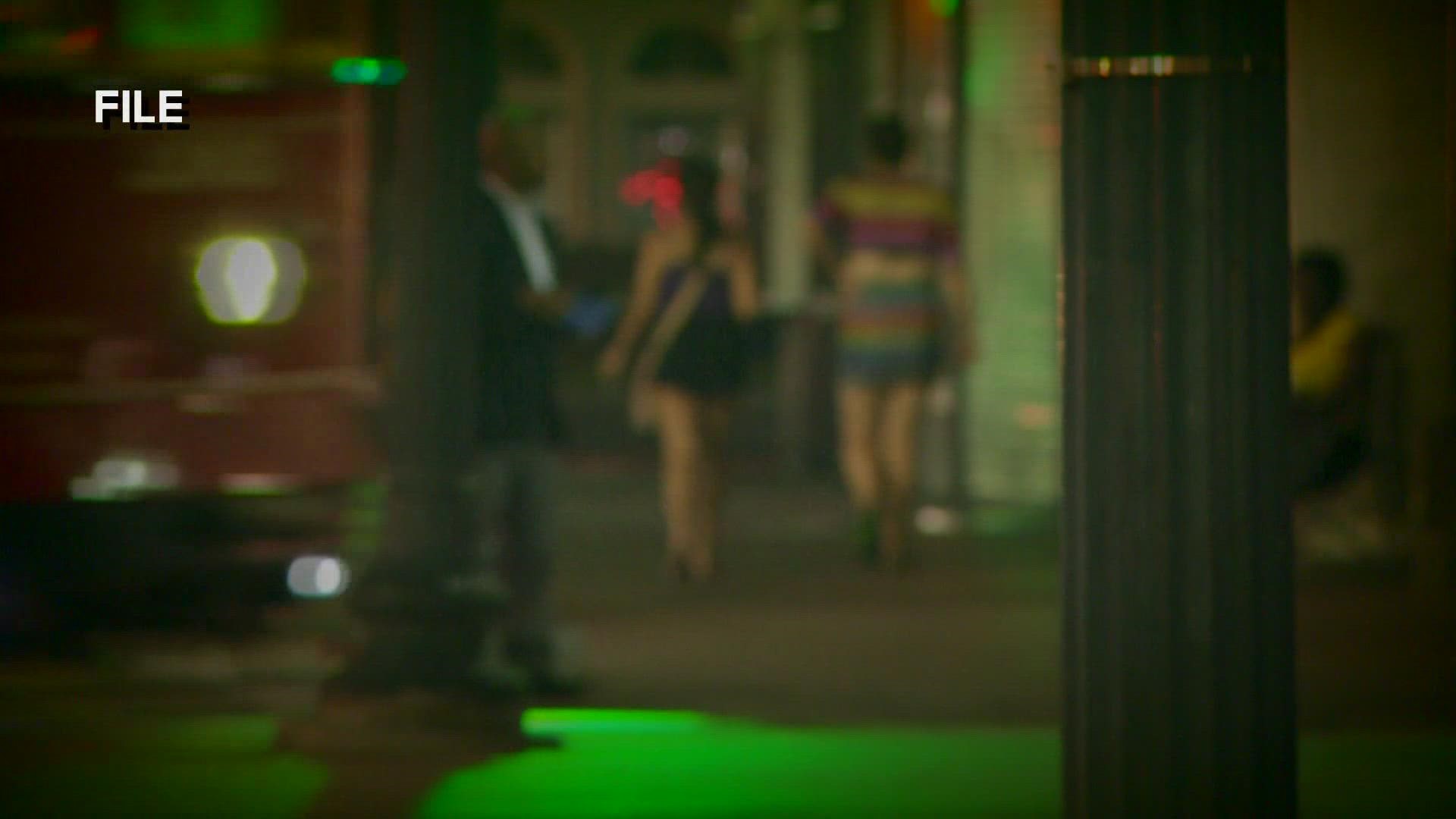NEW ORLEANS — Human trafficking is considered the fastest-growing criminal industry in the world.
It's so widespread in Louisiana, that the governor created a special office to combat the problem and help victims.
In 2015, a survivor of sex trafficking talked about the force used by captors.
Every day there's plenty of girls that are like, you know what, this isn't for me. But then that's when the ugliness will come out. ‘If you don't do this, if you don't do that, we gonna beat your ass or you won't come out alive or I got you.’ You know? Girls get killed every day or threatened or taken,” a survivor, who wanted to remain anonymous, told Investigative Reporter Katie Moore in 2015.
FBI Supervisory Special Agent Jennifer Terry, oversees the Child Exploitation Human Trafficking Task Force in Louisiana. She says the perpetrators move victims around.
When asked how big of a problem human trafficking is in the New Orleans area, she replied, “I could say that it's a regular problem that happens with regular frequency. We're right on the I-10 corridor. It's very easy for people to come from Texas.”
New Orleans is attractive to them with its tourism industry. The traffickers look for big events, like Mardi Gras, or the NCAA Final Four. Those are opportunities to make money.
Special Agent Terry says the most common victims of commercial sex trafficking are:
- Runaways
- Teens with drug addiction, who have been abused, in foster care, or with mental illness
- Unemployed and desperate for work
- Male, female, transgender
Teens are more likely to be victimized but in Louisiana, she's seen victims from ages 13 to their 50s.
Terry also says social media can be a dangerous place for young people.
“We see so many young people get victimized through social media, not just with trafficking, but we see a lot of sextortion cases. We see a lot of where they're induced to produce inappropriate images,” she said.
Cybersafety tips include:
- Be aware of posts
- Don't show location
- Don't friend, communicate or meet strangers in person
- Never post pictures you can't take back
- Don't use hashtags like #NobodyUnderstandsMe or #INeedToGetOutOfHere, letting others know you’re unhappy
“Teenagers, they think they have a boyfriend now, someone who's going to take care of them. They think that this person's going to help them get their basic needs, so often they don't realize they're being victimized,” said Terry.
Agent Terry says Louisiana now has harsher penalties for human trafficking, and she is seeing many more cases and convictions.
“They can try to get help, but as soon as they get caught, he gonna beat them worse than what the beat them before,” said the female survivor about the predators.
And while there are victims who are rescued, but then become victims again, Terry’s task force of 10, knows they are changing lives.
“It's a kind of a special opportunity to have an impact in somebody's life. There's nothing more important than saving children and helping children,” she said about why she chose her career.
The FBI warns that it is dangerous to approach people you suspect are involved in human trafficking. They usually have a criminal history and may flee. Call the police instead.
National Human Trafficking Hotline: 1-888-373-7888
Text HELP to 233733 (BeFree)
Call State or Local Police or 911 if it is an emergency situation.

